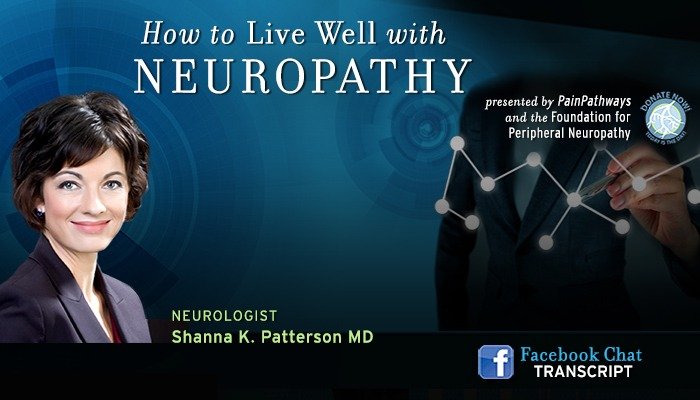Pain Relief Through A Gluten-Free Diet – What To Consider?

If you go grocery shopping regularly, chances are you’ve noticed a somewhat recent rise in the number of gluten-free diet options available. This is in part because the number of people suffering from gluten sensitivities is also on the rise.
In fact, studies estimate the number of people diagnosed with Celiac Disease (one of the main causes of gluten sensitivity) is 1 in 133 million people. And that’s just people with a diagnosis. Studies estimate that 83% of people who have Celiac Disease are undiagnosed or misdiagnosed with something else. This is because Celiac Disease can present itself very subtly in people who have it. This, in turn, makes it difficult to discover.
A person who has Celiac Disease must avoid consuming gluten, which damages his or her small intestine.
However, Celiacs are not the only ones who should care about gluten in their food.
While a gluten-free diet is necessary for people who have Celiac Disease, since gluten destroys their small intestines, this diet change can benefit many other people, too. People with some obvious conditions come to mind, such as those diagnosed with Irritable Bowel Syndrome (IBS) or non-Celiac gluten sensitivity. However, some not-so-obvious candidates have also found pain relief through a gluten-free diet. These candidates include people suffering from any type of inflammation, such as Rheumatoid Arthritis.
[Related: Abdominal Pain: Creating Your Path to Wellness]
Transitioning to a gluten-free diet can come with many health benefits. If you’re considering this dietary change, you should understand several critical points before you begin.
Gluten and where it’s Found
Gluten is a protein that, unlike other proteins, is difficult for the human body to digest completely. Many people who experience problems when consuming gluten experience them for this reason.
Grains, including wheat, barley, rye, and triticale (a cross between wheat and rye), contain gluten. This means that many of the foods we eat also contain gluten. From bread to pasta to beer, to even salad dressings and candy, gluten is a common ingredient. If you have gluten sensitivity, it is always important to check the ingredient lists of whatever you are consuming, as sometimes its presence can be surprising.
Effects of a gluten-intolerance on the body
The effects of gluten intolerance come in many shapes and forms. They range from annoying to serious and chronic. For example, someone with gluten sensitivity might experience digestive discomfort, while someone with Celiac will also experience intestinal damage (and therefore must take on a gluten-free diet).
Additionally, people who have gluten intolerance are susceptible to feeling pain anywhere in the body. This is because undigested gluten particles can leak through the intestinal walls and spread through the bloodstream, according to Alessio Fasano, MD, who directs the Center for Celiac Research at Massachusetts General Hospital in Boston. This can lead to many additional issues, including:
- Unintentional weight loss
- Joint pain and inflammation
- Anemia
- Osteoporosis
- Infertility and miscarriage
- Headache
- Depression
Benefits of a gluten-free diet
The benefits of a gluten-free diet are abundant and diverse. This is for a few reasons. For one thing, the body stops consuming a protein that it struggles to digest. Additionally, because a gluten-free diet typically eliminates the less-healthy food, it in turn demands healthier alternatives to fill in the gap. Here are some of the major benefits of a gluten-free diet:
- Improved cholesterol
- More energy and less fatigue
- Better digestive health
- Reduced risk of heart disease and certain cancers
- Improved immune system (if the foods you eat in place of gluten-containing foods are heavy in antioxidants)
- Reduced joint and back pain
- Weight loss (which also helps with joint and back pain)
What you should know before going gluten-free
Although there are many benefits to going gluten-free – and for some people this change is necessary – there are also some important things to know before making the switch.
First, it is important to consult a doctor and get tested for Celiac Disease before going gluten-free. Going gluten-free before a test can make a proper diagnosis difficult to achieve.
It is also important to know that a gluten-free diet must be taken seriously to be effective. This means watching out for cross-contamination. The transfer of gluten from one food to another can happen easily if the foods touch and even a small trace of gluten can negatively affect someone with an allergy. Additionally, gluten is in many more food products than may be obvious. This means that a gluten-free diet takes serious commitment and demands careful attention to food labels and restaurant menus. Gluten-free foods also typically cost more money, so expect your grocery expenses to increase.
Additionally, while a gluten-free diet can often lead to improved eating habits, it also eliminates many foods that offer your body important vitamins and nutrients. For example, people on a gluten-free diet can no longer eat fortified bread and cereals, which are excellent sources of B vitamins (an example of a B vitamin would be folic acid, which pregnant women especially need). People on a gluten-free diet also no longer can consume whole wheat, which is an excellent source of fiber. The good news here is that just because you stop getting these nutrients through gluten-positive foods doesn’t mean you can’t get them elsewhere. Excellent substitutes include fruits, vegetables, beans, and whole rice. The important part is that you are aware of this need for nutrient compensation.
The controversy (and caveats) of a gluten-free diet
There is some controversy over whether a gluten-free diet is a reliable solution to the pain other autoimmune diseases cause. For starters, not enough scientific evidence exists to definitely prove the impact one way or the other. Additionally, people with autoimmune diseases have seen mixed results. For example, some people with Rheumatoid Arthritis don’t see any improvements in their symptoms after going gluten-free. On the other hand, some experience such great results that they can trade their medication in for the new diet.
Additionally, while a shift toward a gluten-free diet may seem to solve the symptoms of other autoimmune diseases, there could be a lurking variable. That is, it may actually be ameliorating the pains of an undiagnosed case of Celiac Disease. According to Joseph A. Murray, MD, the director of the Celiac Disease program at the Mayo Clinic’s campus in Minnesota, “Having one autoimmune disease can increase the likeliness of having another.” Until more research is done regarding gluten-free dieting and non-Celiac autoimmune diseases, it will be impossible to say for sure the connection between gluten and improved symptoms.
With all the pros to taking on a gluten-free diet, one should only go gluten-free if there is clear evidence of a sensitivity to gluten. Even so, it is important to get tested for Celiac Disease by a medical professional before converting to a gluten-free diet. Getting tested after going gluten-free can affect the results.
Is a gluten-free diet right for you and your pain condition? Possibly. When you warrant a gluten-free diet, and implement it thoroughly and correctly, you may experience health improvements and pain relief. Talking with your physician is a good first step.
If you’ve ever tried a gluten-free diet, let us know what your experience with pain relief was like in the comments below.
Dr. Edward Zelman
Dr. Edward Zelman is a distinguished and highly respected medical professional who has dedicated his career to the field of general medicine. With a profound commitment to patient care and a wealth of knowledge acquired over decades of practice, Dr. Zelman has earned a reputation as a trusted healthcare provider in his community. With a career defined by excellence and an unwavering commitment to the betterment of his patients and the broader community, Dr. Edward Zelman stands as a pillar of the medical field, dedicated to the principles of healing and compassionate care. At present, Dr. Edward Zelman is researching safe and effective natural remedies that can restore as well as maintain the youthful functioning of the body.
View All By Dr. Edward






